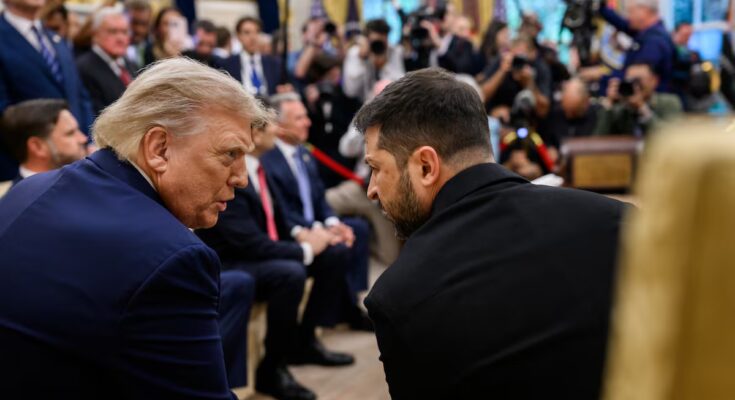Everything is bad. And it happens simultaneously. America’s radical unilateralism challenges Europe and the world. Big events come together in a few hours.
And in all these cases, Donald Trump’s government ignores or mistreats its allies (his peace project for Ukraine) with initiatives that harm them; boycotts multilateral forums (the G-20); or it erodes them by participating only marginally (Belém climate conference).
Absences, boycotts and proposals whatever diktat ―if accompanied by ultimatums―, they constitute a varied set of tools. But in all of them comparison beats. And in all of them there is a single purpose: to configure a unipolar world with an imperial flavor, devoid of norms, procedures and organizations that resolve differences in harmony.
A world in which other powers are good or bad according to their whims and humor: deep complicity with Putin’s Russia; syncopated showdown for Xi’s China; attempted subjugation of Europe. And in which all nations remain orphans of lasting instances and pacts that ensure and protect them.
A world whose only law is the will of the tyrant, limited only by the ability to please him. Or heroic resistance, in individual disorder.
This is the outline of the 28-point plan for Ukraine, which follows the outline of the one proposed for Palestine. With the expected and verified result of a ceasefire that was more nominal than real. In which the density of war actions and access to certain food aid practically do not change.
With aggravating circumstances: the plan for Ukraine certifies Trump’s betrayal of his own country’s positions in favor of the territorial integrity of the invaded countries, and of the international law on which it is based: it validates the dividend of conquest. And it consecrates disloyalty to its allies in the EU (and NATO), the primary civilian and military contributor to the resistance and the main energy and safety of the invasion… after the Ukrainians themselves.
The transgressive tycoon reproduces models of power that he used in his tariff war. As in his case, Europe’s response is ambivalent. He is right to oppose resistance (even if soft, pathetic) to every measure. And in the search for bilateral allies, as indicated by the pattern of new or improved trade and security agreements with many countries: Canada, Australia, Japan, Mercosur, India, Indonesia… Also, balanced between suspicion and necessity, with China.
But this network lacks an engine: the call for a global and open multilateral forum that revitalises, renews or generates alternatives to sterilized (the WTO), declining (the WHO) arbitral institutions and short-circuited policies such as development aid. If we Europeans lack this ability to convene, how can we aspire to play a role as a key actor in this new and inhospitable world?



